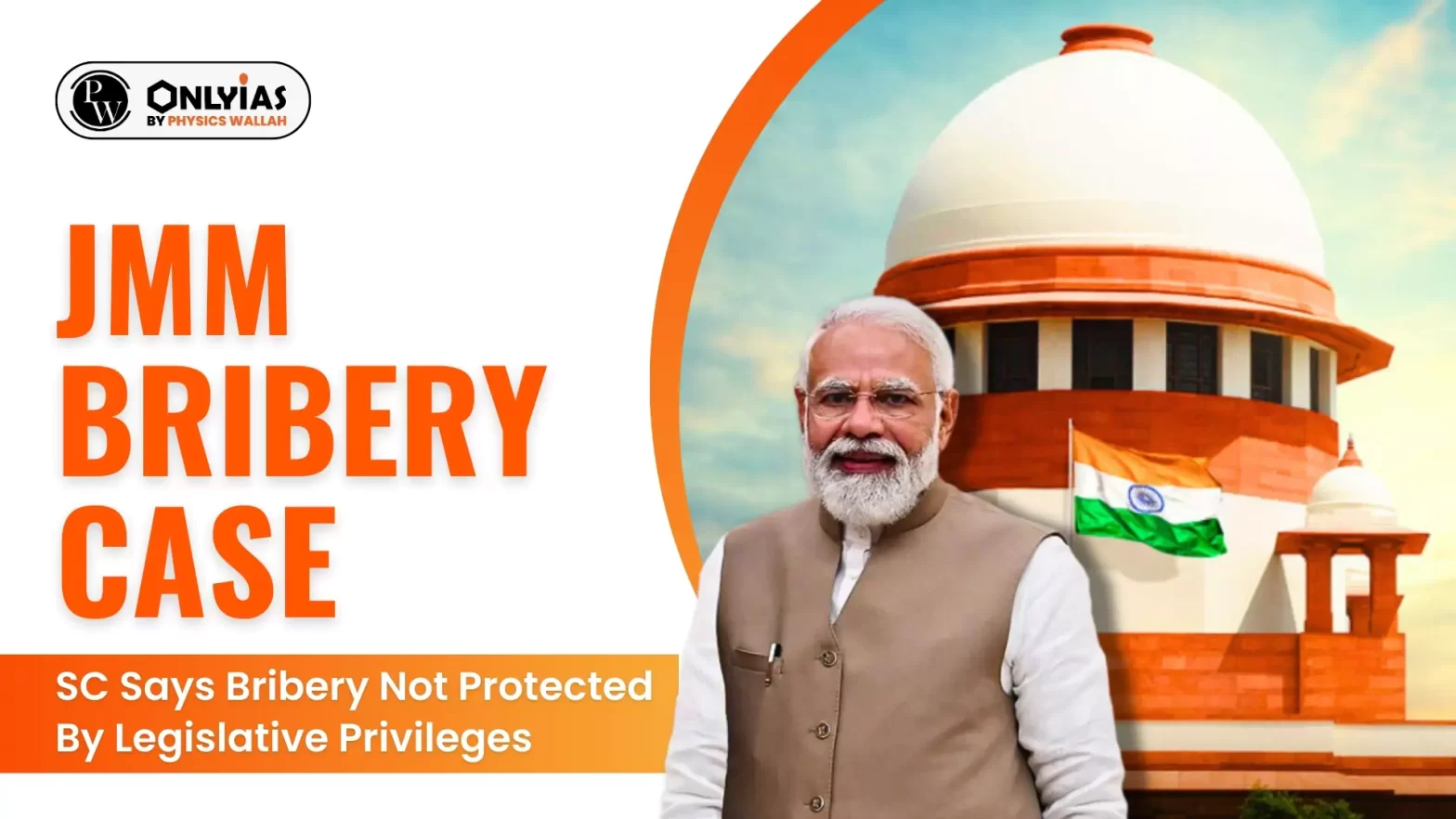![]() 6 Mar 2024
6 Mar 2024

This editorial is based on the news “SC overrules majority verdict in JMM bribery case: ‘corruption and bribery by members of legislature erode probity in public life” which was published in the Indian Express. Recently, a seven Judge constitutional bench of the Supreme Court held that legislators do not enjoy immunity from criminal prosecution for bribery charges in connection with their speech and votes made in the Parliament and Legislative assemblies. The Supreme Court overturned its 1998 PV Narsimha Rao judgement.
| Relevance for prelims: Supreme Court, Indian Parliament, Parliamentary Democracy, Fundamental Rights (Article 12-35) and Parliamentary Privileges Article 105.
Relevancy for Mains: JMM Bribery Case: SC Overturns 1998 Ruling, MP/MLAs to Face Criminal Prosecution: Case Highlights, and Significance. |
|---|
Article 105 of Indian Constitution
|
|---|
Significance of the Judgment On JMM Bribery case
|
|---|
The Supreme Court’s decision on JMM Bribery case is a significant step towards ensuring transparency and accountability in India’s parliamentary system. It would help in maintaining a delicate balance between upholding legislative independence and combating corruption.
| Prelims PYQ (2017):
One of the implications of equality in society is the absence of (a) Privileges (b) Restraints (c) Competition (d) Ideology Ans: (a) |
|---|
| Must Read | |
| NCERT Notes For UPSC | UPSC Daily Current Affairs |
| UPSC Blogs | UPSC Daily Editorials |
| Daily Current Affairs Quiz | Daily Main Answer Writing |
| UPSC Mains Previous Year Papers | UPSC Test Series 2024 |
<div class="new-fform">
</div>